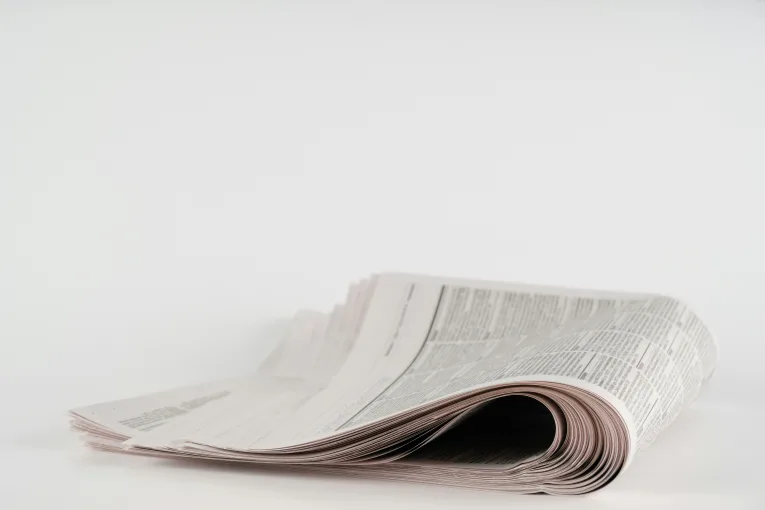
 The Enterprise “editor’s choice” of the top ten Davis stories of the year ran on January 1st as it always does. Five of the top ten stories seemed to me involved sad but fleeting incidents—crime or auto accidents—some of which even occurred in Woodland.
The Enterprise “editor’s choice” of the top ten Davis stories of the year ran on January 1st as it always does. Five of the top ten stories seemed to me involved sad but fleeting incidents—crime or auto accidents—some of which even occurred in Woodland.
So, here’s my alternative list of top stories, things that I believe will have a lasting impact on the Davis community—with a bit of foreshadowing into 2025. Only two of my list of stories are on the Enterprise’s “top ten” list.
- Local impact of Trump’s election: With Davis voting over 85% for Harris, her loss had a profound psychological effect on residents, especially given the “culture war” aspect of the race. Beyond this, the presidential campaign involved hundreds of local residents in what surely was likely the biggest single volunteer effort of 2024: Davisites made tens of thousands of phone calls and texts, over 30,000 postcards were handwritten to encourage others to vote, and residents traveled repeatedly to Nevada or a Central Valley “purple” congressional districts to register voters and get out the vote. The best qualification of the unprecedented election involvement is that Davisites donated over ten times more money to campaigns compared to 2016. Apart from the volunteering, the looming impacts of Trump’s policies will be profound in Yolo County. Trump’s promise to deport 11 million residents (~1.5m in California) will likely impact 8-12% of Central Valley/Yolo families—at least with existential fear even if Trump fails to fulfill his deportation policy. With UC Davis being an internationally connected institution, I expect xenophobic/America First policies like the reinstatement of the Muslim ban, with others too.
- K-12 Schools are the core of Davis, so Spring 2024 voter approval of DJUSD Parcel Tax Measure N should be a top ten story. N’s goal was to retain our DJUSD teachers by allowing an overdue salary increase so we can continue to attract and retain the best teachers. The steady decline in the number of Davis-resident students in our school system is also very important story, as is the addition of many new DJUSD buildings which seems to have gone unnoticed. Trump’s culture war on schools is also on DJUSD’s radar (see story #10 below). The Enterprise’s failure to retain a dedicated DJUSD reporter is probably part of the reason for what feels like a news blackout here.
- Death of Delaine Eastin: To me, this was a notable passing of a beloved figure.
- New Davis law allowing Food Trucks at events and locations other than the farmers market.
- The New Library in South Davis and the tax increase vote to operate it.
- Plans for thousands of new Davis homes & apartments: The Council has been working diligently on a number of development proposals, with a bias toward affordability (small or subsidized) and higher density they hope will reduce GHG & traffic impact of these developments. Two large apartment complexes in south Davis along the freeway are due to open up soon. Collectively, these will profoundly change Davis.
- I-80 widening: This is the main access to Davis given the anemic (slow and expensive to use) regional transit options local electeds have provided us. Last spring, funding for phase 1 of this controversial $465 million widening was approved—the largest public works project in Yolo for the next decade. I expect I-80 widening will remain in the news as a) construction will continue for at least another 3 years, b) additional funding to complete it might be contingent on the results of an environmental lawsuit, and c) sticker shock & social inequity: UC Davis experts forecast it will recongest within ten years unless drivers can pay what electeds say will be a $5-10/peak hour one-way toll on the new lane. I would also top-rate the passage of an increase in city sales tax (~$10 million/year) which can be used to catch up on overdue street repair..
- Streamlining Davis government (or reducing community participation?) In the winter of 2024, the Davis City Council decided to reduce citizen oversight Commissions by 25%—and reduce their independence by monitoring what is on their agendas. Now they are reframing the commission role from oversight to “ambassadors” to the community. This is a bit of an “inside the beltway” story, but the issue is still generating op-eds & letters to the editor ten months later. That it is still an issue is indicated by Mayor Chapman announcing he was stepping down from the council Commission Subcommittee due to the continuing controversy. This meta story is important as it impacts all city decision-making going forward. The Enterprise lists only one political issue as a top story—the November election of 3 members of the city council and a new County supervisor for East Davis. But this was largely an affirmation of the status quo governance as all these new electeds are insiders. The passage of the sales tax increase, though a significant bump in city revenue, is seen by its advocates as an affirmation of continuing the status quo, so to me less than top news, like the fact electeds three of whom ran unchallenged.
- Homeless situation: Certainly, this is one of the biggest challenges our and other communities are dealing with. There has been many meeting on this, and a Davis law change on encampments drew an unusual 20 speakers to a city council meeting to comment.
- Culture War Comes to Davis with the election of Trump: Is it a pandemic of Jew-hate from the left or the beginning of an anti-antisemitic red scare? Are both true? A big story in Davis 2024 was the protests of US support of the Gaza/Israel war—which at times morphed into questioning the legitimacy of the existence of Israel as a Jewish state—and its governing “from the River to the Sea.” There is no new protest encampment at UCD this scholastic year, but other civil disobedience continues: sporadic protests on campus continue to illegally disrupt speakers’ events, But weekly protests for a ceasefire at Congressman Thompson’s local office in Woodland continue—legally—without incident after 15 months. Meanwhile, a number of Jews in Davis have accused protestors, seemingly en masse, of being “radical antisemites,” lawbreakers, or even connected to Iran. UC Davis was hit, as were many colleges & universities, by a Title VI Civil Rights suit by national Jewish groups for allowing an antisemitic climate to exist—i.e. not shutting down the protests or (somehow) not stopping individual acts of antisemitic graffiti & vandalism, and microaggressions toward Jewish students. They seem to hold Davis schools responsible for some social media threats against Jewish students from unidentifiable sources while ignoring the removal of moderation of X (aka Twitter) by Elon Musk, that used to eliminate antisemitic posts.
In 2025 this conflict looks to morph, especially for Davis, into something bigger with the election of Trump and his takeover of the Department of Justice and the FBI. The GOP and Christian Right are culturally appropriating the charge of “antisemitism” against the left and academia, escalating any questioning of Israeli policy in Gaza into the equivalence of attack on Jews in general, and even support of terrorism. (Google the Heritage Foundation’s follow on to Project 2025 “Project Esther”). The grounds are set for a “red scare” about antisemitic terror. But you can find dichotomous thinking among many on both sides. I would expect to see more legal pressure on UC Davis and even DJUSD: Harmeet Dhillon, the lawyer for Davis’s own notorious culture warrior/anti-trans activist Beth Bourne, is slated to be the head of the Trump DOJ Civil Rights division that supports Title VI complaints against schools.
To sum it up: “May you live in interesting times.”
***
Alan Hirsch can be seen in the Saturday Farmers Market passing out “Love your Neighbor” and “Support Science” lawn signs.

To be fair on Enterprise news coverage of DJUSD reporter Monika Stark has now stepped to cover K-12 on top(!) of her beat at UC Davis. But lack of seeing the importance of Measure N parcel tax to fund retaining top teaching staff was strange omission from top 10 stories.
Monica Stark is correct spelling..